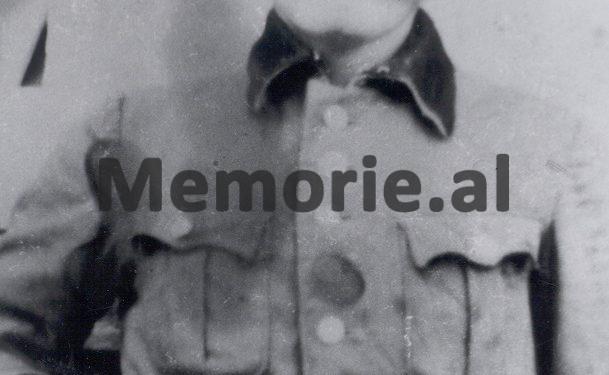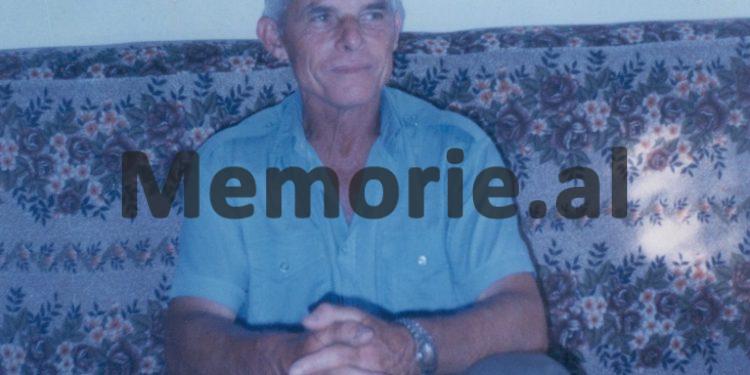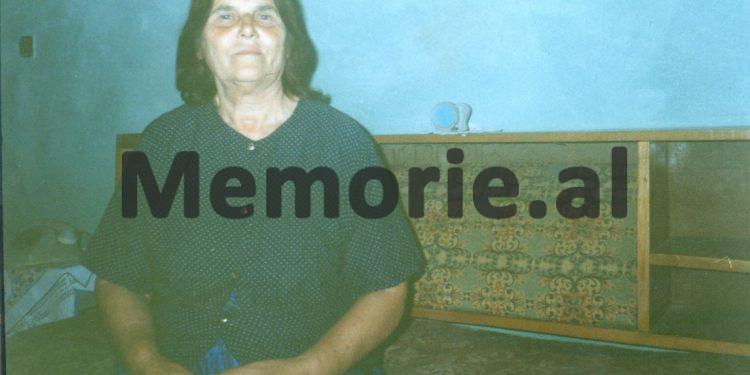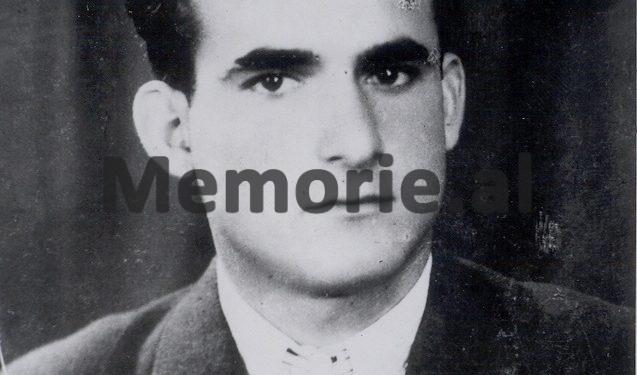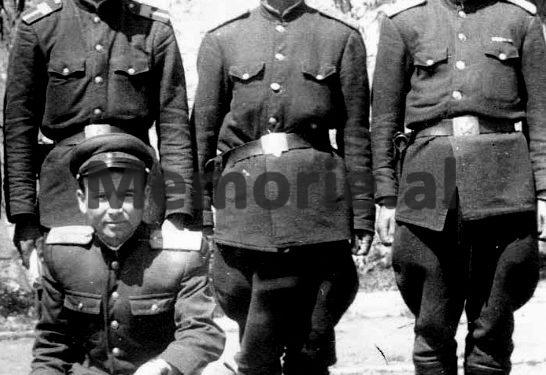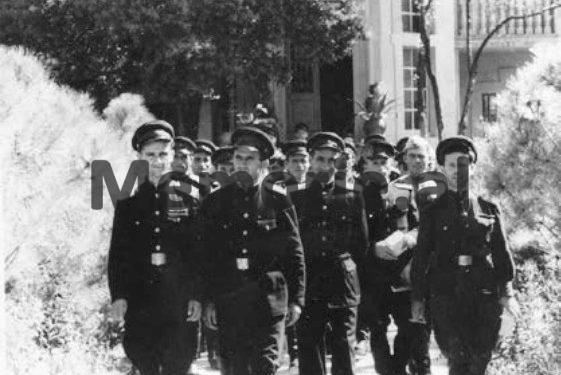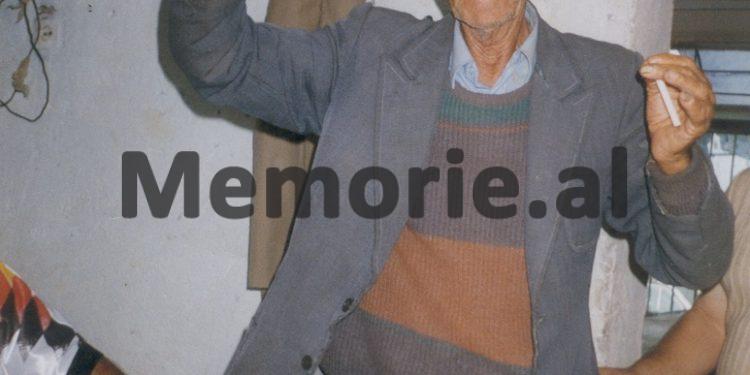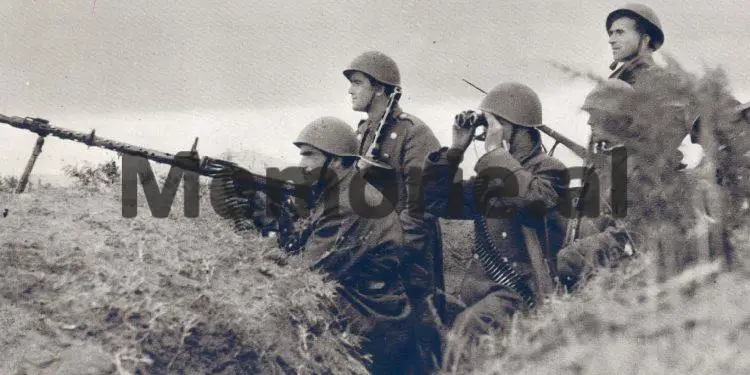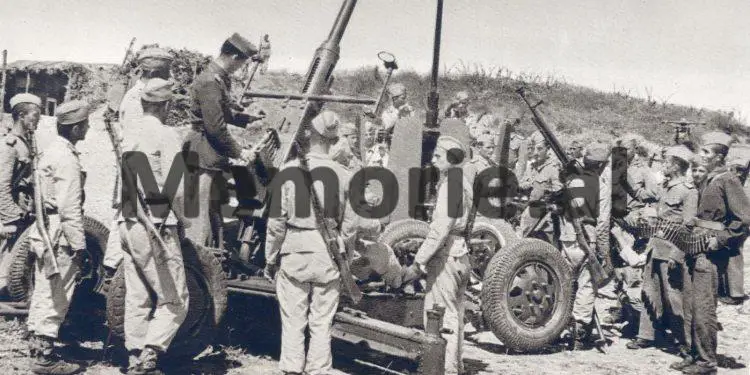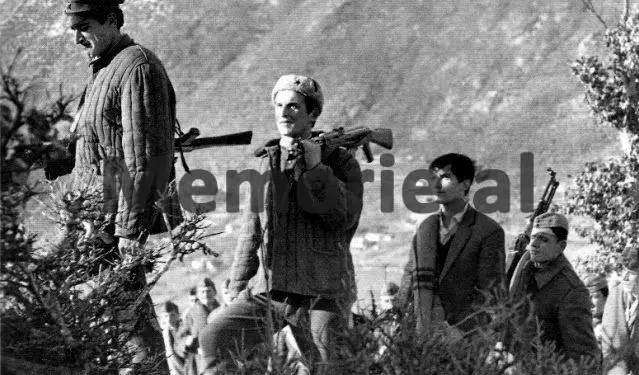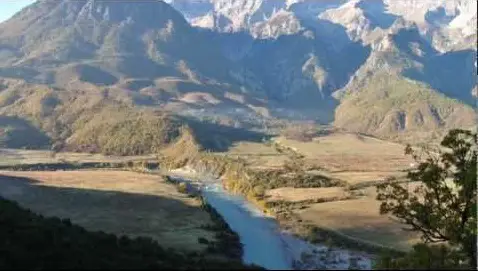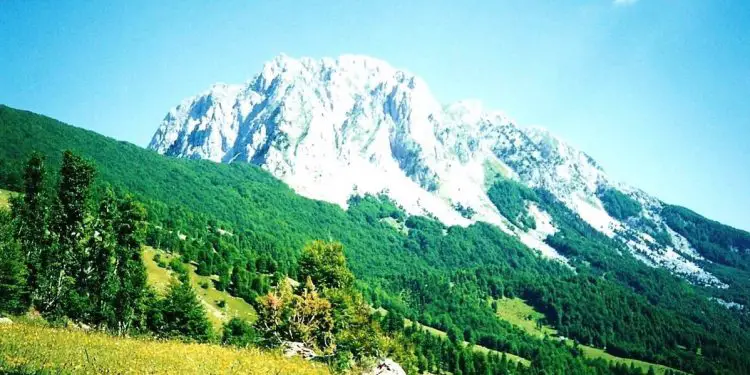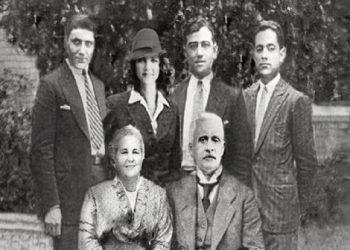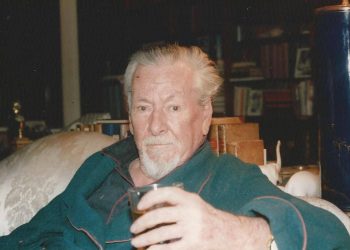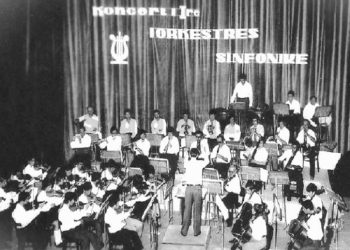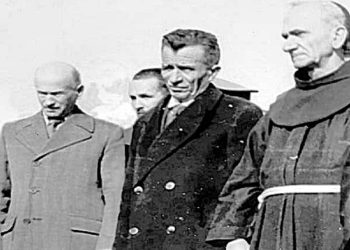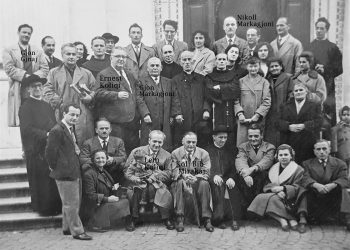Dashnor Kaloçi
Memorie.al publishes the unknown story that happened in 1947 in the Military Garrison of Përmet, where soldier Mëhill Pëllumbi, originally from the village of Gjuraj-Plan of the Dukagjini Pult, after having fierce debates and a conflict with his commander, regarding a events that took place in 1945 in his village in Dukagjini, where the Pursuit Forces had killed Losh Kola, a fellow villager, Mëhilli pulled out his pistol and killed his commander, as he had threatened him before, saying that he too had to have the same fate as Losh Kola.
Rare testimony of Nikol Pëllumbi, Mëhilli’s brother, about the event that took place in the Përmet Garrison, where after the assassination of his commander, Mëhilli fired grenades, killing 12 officers of that unit who were in a training and then left. in the direction of the village of Çarshovë, where he was surrounded by the Pursuit Forces and was killed, as he had previously killed three other soldiers in the house where he was being surrounded. The revenge of the communist regime against the family of Mëhill Pëllumbi, after the “massacre” he committed in the Përmet ward where he performed compulsory military service, imprisoning his father, Pëllumi, sister Pashka and brother, Prenushi, and executing his brother the other, Mark, who had fled after the Mill event
“On that January day in 1945, when Mëhilli left home to go to the army, our mother, Dila, started screaming, saying: that boy would not return home alive, as he was sworn against the communists and they would kill him. I was reminded of that mother’s premonition at the beginning of August 1947, when the Chairman of our Village Council came and gave us the mandate to kill Mëhill, telling our parents: ‘Your son was killed fighting against communism and People’s Power ‘. From that day until the fall of the communist regime, our family was followed only by dark days, with murders, imprisonments and internments. “That event caused our family to mention the story of our brother, Mehill, the ‘dangerous enemy’ who had killed 15 soldiers in the Përmet Garrison.” Testifies for the first time for Memorie.al Nikoll Pëllumb Pjetri, originally from the village of Gjuraj-Plan of the Dukagjini Dashboard, who tells the whole story of his family and his brother, Mëhillit, who in the summer of 1947, was the author of the sensational event that shook the communist government of Tirana.
Who was Mëhill Pëllumbi, what was the past of his family and under what circumstances did that event which is remembered by the inhabitants of the village of Çarshovë of Përmet happen?! What was the origin of the debate started between Mëhilli and his commander and what did that officer have to do with the event that took place in 1945 in the village of Mëhilli, where a very famous person named Losh Kolaj (Gjuraj) was killed? Why did the villagers of Çarshova insist that he be buried in the cemetery of their village and how did it become possible to find his remains after more than half a century?
Pëllumbi family, against any government
Mëhill Pëllumbi was born in 1920 in the village of Gjuraj-Plan of Pultit i Dukagjinit, where the family is from, and he was the third child of Pëllumb Pjetër Pëllumbi, out of eight children he had. Regarding the past of that family, the youngest of her sons, Nikoll Pëllumbi, testifies: “We as a family have always been against any government that this country has had, from the time of the Zog Monarchy until now. It is not that we have fallen on anyone’s neck, on the contrary, all the governments that have come and gone, have disturbed us first. The troubles of our family have started since the time of Shkaj, when after we fought them with weapons in hand, our towers were burned twice. The same happened with the arrival of Zog in power, when Vas Kiri with some mountaineers went and fell to the post of the Gendarmerie of the Middle Bridge in Shkodra. After that event, as a sign of revenge, Zogu led us large forces of gendarmes who came and retaliated against us, killing us with our father’s cousins. From that clash, two gendarmes were killed, whose graves are still there today in a place called “Koder Qershizë”. From that time, although Zogu did not harass us anymore, our family was known as anti-Zogist and we never agreed with him. Even with the arrival of Italy in 1939, our family did not mix at all with the War, but we had to look at our plight, to work that piece of land and to eat a piece of bread with honor. Likewise, the communists who started appearing on the scene during the war, we did not like them and we never welcomed the partisans in our house. We as a family have a lot to do with the Catholic religion and I am brymos with a Christian upbringing from Father Justin Rrota, who has served as a parish priest in our village. I am very young then, but I remember my older parents and brothers, who told me that Father Justin always said: “The evil of this country will come only from Moscow.” “But most of all from our house, with anti-communist convictions, have had a brother rymos, Mëhilli, who did not have any school class and has learned a lot from Padre Justin”, Nikoll Pëllumbi remembers, regarding the history of his family, which was known as a rebel house, which was not subject to any regime.
Soldier Michael’s debate with the commander
After the end of the War in January 1945, when the first military mobilization took place by the newly ruling communist government, Mëhill Pëllumbi, he was called to perform compulsory military service. Regarding this and the sensational event that happened two years later in the city of Përmetiti, brother Nikol Pëllumbi testifies: “At the time that Mëhilli left home to go as a soldier, I was not more than four and a half years old, but I remember very well my mother’s cries for Mehill. At first Mëhilli was mobilized as a soldier in Tirana, then he was taken to Korça, and finally to Përmet. From the day he went to the army and until the news came to our house about his event, we as a family had no contact with him. The event of Mëhillit took place in the village of Çarshovë of Përmet, where he was a soldier for the last time, and the beginning of his quarrel started after one of the officers he had as commander, was involved in the operations carried out by the Prosecution Forces in our village. in 1945, when they had killed Losh Kola (Gjurajn), who was known throughout the highlands. Mehilli, as soon as he learned that his commander had taken part in Loshi’s assassination, started arguing with him, saying: Mëhilli was talking about Loshi who had been killed then for a pistol they had found with him. After that, the officer said to Mill, “You are a northerner and all of you northerners are reactionaries.” After those words, the officer addressed the other soldiers in the line, saying: ‘This one should be treated like his patriot, Losh Kola’. Mehilli could not stand it anymore and turned to him: ‘Commander, two Albanians are too many to be killed for a piece of iron’. After Mëhilli’s words, the commander told him: ‘You are not Albanian, you are a fascist’. These words of his officer, Mëhilli could not stand them and at that moment, pulling out his revolver from the belt, he said: ‘Since I am not Albanian, I’l say goodbye to Losh Kola’ and he shot several times in the direction of the commander, leaving him dead on the spot “, recalls Nikol Pëllumbi, regarding his brother, Mëhillin, who in August 1947, killed his commander in a unit of the Përmet Corps, after a quarrel that started over a murder committed two years ago in the village of Gjuraj in Pultit i Dukagjinit.
Killing of 15 officers
What later happened to soldier Mëhill Pëllumbi, after he shot and left his commander dead on the spot, after fierce debates they had with each other? In this regard, Nikola testifies: “After Mëhilli shot killing his commander, all his fellow soldiers who were lined up were stunned and none of them made any move towards him, even though they were all armed with rifles. on the arm. In those moments when the gunshots were heard, a large group of officers who were conducting theoretical training in a nearby tent, immediately went outside and with guns in their hands called to Mehill to surrender. But Mehilli, not only did not surrender, but instantly he pulled out two or three hand grenades from the belt and immediately threw them in their direction. There was a real massacre, as most of the officers were killed, about 12 people, and some others were injured. After that Mëhilli started running out of the ward and took the road towards the village of Çarshovë. When he arrived in that village, he no longer had the strength to walk and entered a house where an old woman lived alone, without a man. Shortly afterwards in that house he was surrounded by numerous army forces who had begun pursuing him since Përmeti. They were ordered to capture Mehill alive, but the position of the house was such that they found it difficult to do so, and from the fact that he was armed he seldom shot at them. As with exchanges of fire from both sides, they continued until the light was fading, and from the additions of the Mill, two other officers were killed who tried to enter through the windows. After their killing, the army forces were ordered to mine the house, as the light was fading and that event would cause great commotion from the villagers who would see it with their own eyes. After that order they put dynamite on the house and Mehilli remained dead under its ruins. When soldiers entered to retrieve his body, they reportedly found him with a bullet wound to the head after he had killed himself. After his assassination, officers ordered some villagers to bury his body somewhere nearby. But the villagers told them that it was customary for no one to be buried outside the village cemetery, so if they wanted to let them take his own body and take it wherever they wanted. After that one of the officers was told: ‘Bury where you want that carcass’. “After that, they took Mëhilli’s body and buried it somewhere in a corner of the cemetery of their village, putting another mark on it”, recalls Nikol Pëllumbi, regarding the sensational event of his brother, Mëhilli, who was killed in the village of Çarshovë in Përmet, after he had previously killed 15 officers in his unit.
Massacre on the Pellumbi family
Two or three days after that sensational event that had a great echo to Tirana, where the highest leaders of the Ministry of Defense were called to the Government, the State Security forces launched by the Internal Branch of Shkodra, arrived in the village of Gjuraj , where was the home of Mëhill Pëllumbi. Regarding this, his brother, Nikolla, testifies: “We heard the news of Mehilli’s murder from the Chairman of the Council of our village, who came and gave us the mandate, and after them came the Security forces from Shkodra , who after putting the irons on their father, took him with them. After holding him for six months in the interrogator, the father was brought to trial and acquitted, freeing him from the courtroom. This happened after he said: ‘I am not responsible for what my son has done, since from the day I handed it over to you, I have never had the opportunity to meet him’! While the father was released, the other brother, Mark, (who at that time was not more than 17-18 years old) had run away from home and was staying in the mountains and the government declared him a wanted person. At that time Mark joined Lazarus Paul and other mountain men who were fleeing for political reasons and fell several times to the efforts of the State Security forces, who managed to arrest him twice, and twice he was able to ‘ik ikte atyne. After entering and leaving the border several times, on December 26, 1952, Marku was surrounded by the forces of the Internal Branch and was killed by them in the village of Gruemirë, while his two friends, Lazër Pali and Kol Leka, managed to break him. siege. The day Mark was killed, Security forces were able to apprehend another brother, Pretashi, 17, who was on the run with Mark, while one of our cousins, Kol Gjoka, escaped and fled to Yugoslavia. and from there to Australia. After capturing Prenushi, Security forces came to our house and arrested our sister, Paska, as she had been chased by them for a long time, while supplying food to Mark and his mountain friends. That day as soon as we heard of Mark’s murder, my mother and I immediately went there because the scene was not too far from where we were living at the time. At his funeral by the Security people, my mother and I were present, as allowed by the Chairman of the Council, Dervish Meti (Hasanaj). A few days later, the trial of Paska and Prenushi took place, who were convicted on the charge of “cooperation and shelter of criminals”. “Pashka was sentenced to ten years, of which she did only seven, while Prenushi was sentenced to five years and did only three”, recalls Nikoll Pëllumbi, regarding the murder of his other brother, Marku, and the imprisonment of Prenushi and Paska.
Mark’s exhumation in 1959 and Mehill in 1993
The murder of the other brother, Marku, as well as the imprisonment of Paska and Prenushi, added to the suffering of Pëllumb Pjetër Pëllumbi’s family, whom the communists had declared a “reactionary family” and who were constantly interned with all the other children left. in home. Regarding this, Nikoll Pëllumbi says: “Since the event of Mëhilli in 1947, there were only dark days for our family and we were told that we had too much shovel. But even in those conditions, I never forgot the two brothers who had been killed by the Communists. I knew Mark’s place because I had been present when he was buried, and I had no clue as to where Mill was buried. About 1959, with the help of a friend of ours (Islam Idrizi) who was in charge of the tractors, I was able to secretly dig up Mark’s remains, and after putting them in a bag, I traveled all night and went and buried them. hid in the graves of our ancestors in the village of Gjuraj. While the remains of the other brother, Mëhillit, we were able to find only in 1993, thanks to the kindness of the inhabitants of the village Çarshovë of Përmet. “Regardless of the circumstances under which our brother was killed, the villagers of Çarshova not only guarded them, but they respected us a lot by doing us all the honors and calling Mehill a great hero”, he concludes his story , Nikoll Pëllumbi, on the tragic story of his family, which was massacred by the communist regime of Enver Hoxha, after the sensational event of 1947, when his brother, Mëhilli, killed 15 officers of the Përmet Garrison./ Memorie.al




